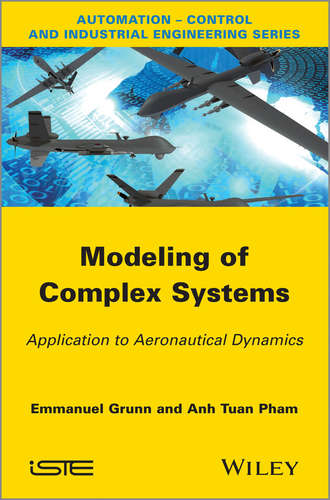
Полная версия
Modeling of Complex Systems. Application to Aeronautical Dynamics
In the field of aeronautical dynamics, this book offers readers a design tool which enables them to solve the different problems that can occur during the planning stage of a private project. The authors present a system for the modeling, design and calculation of the flying qualities of airplanes and drones, with a complete mathematical model by Matlab/Simulink. As such, this book may be useful for design engineers as well as for keen airplane amateurs. The authors expound the various phases involved in the design process of an airplane, starting with the formulation of a design tool, under the form of a 0D mathematical model (dimensionless, time dependent), before moving on to explore the behavior of the airplane under certain circumstances and offering insights into the optimization of airplane flying qualities. As validation of this model, they present a numerical result, drawn from data collected on an existing plane – the Concorde. The dimensional process is then explored and applied to a realistic drone project. Recommendations on the development of the principal characteristics of the plane (i.e. mass distribution, air load, wing span) are given. Contents 1. 0D Analytical Modeling of theAirplane Motions. 2. Design and Optimizationof an Unmanned Aerial Vehicle (UAV). 3. Organization of the Auto-Pilot. This book provides a description of the modeling, design, and calculation of the aeronautical qualities of airplanes and drones. Divided into several parts, this book first summarizes all the necessary theoretical developments about the equations of motions and trajectory calculations of the machine. It then goes on to describe practical building processes and considers piloting methods. The last part makes a comparison between theoretical calculations and measured recorded data of the real flying machine. Accompanied by a complete mathematical model in MATLAB/SIMULINK

